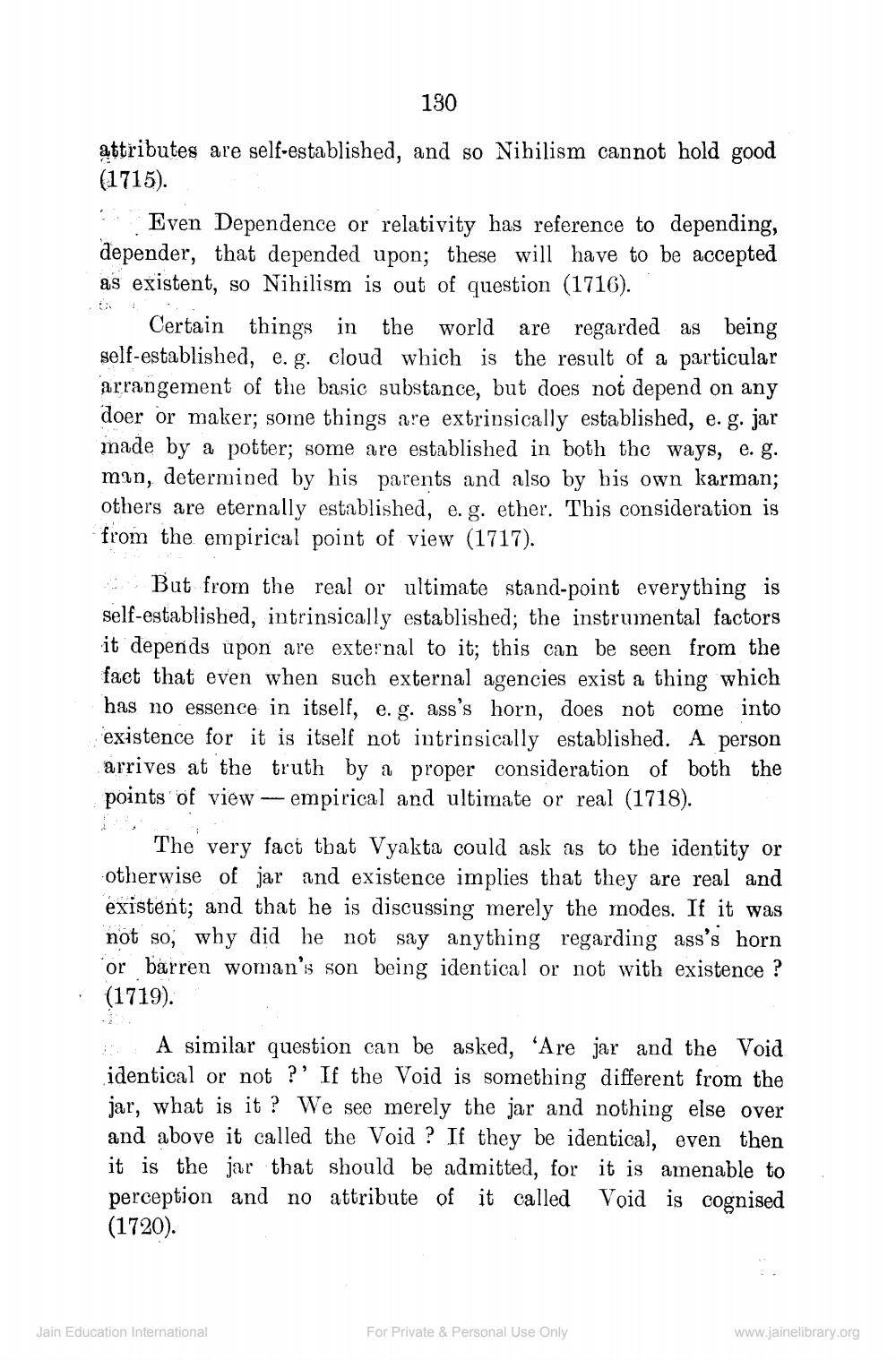________________
130
attributes are self-established, and so Nihilism cannot hold good (1715).
Even Dependence or relativity has reference to depending, depender, that depended upon; these will have to be accepted as existent, so Nihilism is out of question (1716).
Certain things in the world are regarded as being self-established, e. g. cloud which is the result of a particular arrangement of the basic substance, but does not depend on any doer or maker; some things are extrinsically established, e.g. jar made by a potter; some are established in both the ways, e. g. mun, determined by his parents and also by his own karman; others are eternally established, e.g. ether. This consideration is from the empirical point of view (1717).
But from the real or ultimate stand-point everything is self-established, intrinsically established; the instrumental factors it depends upon are external to it; this can be seen from the fact that even when such external agencies exist a thing which has no essence in itself, e. g. ass's horn, does not come into existence for it is itself not intrinsically established. A person arrives at the truth by a proper consideration of both the points of view - empirical and ultimate or real (1718).
The very fact that Vyakta could ask as to the identity or otherwise of jar and existence implies that they are real ar existent; and that he is discussing merely the modes. If it was not so, why did he not say anything regarding ass's horn for barren woman's son being identical or not with existence ? (1719).
A similar question can be asked, 'Are jar and the Void identical or not ?' If the Void is something different from the jar, what is it? We see merely the jar and nothing else over and above it called the Void ? If they be identical, even then it is the jar that should be admitted, for it is amenable to perception and no attribute of it called Void is cognised (1720).
Jain Education International
For Private & Personal Use Only
www.jainelibrary.org




